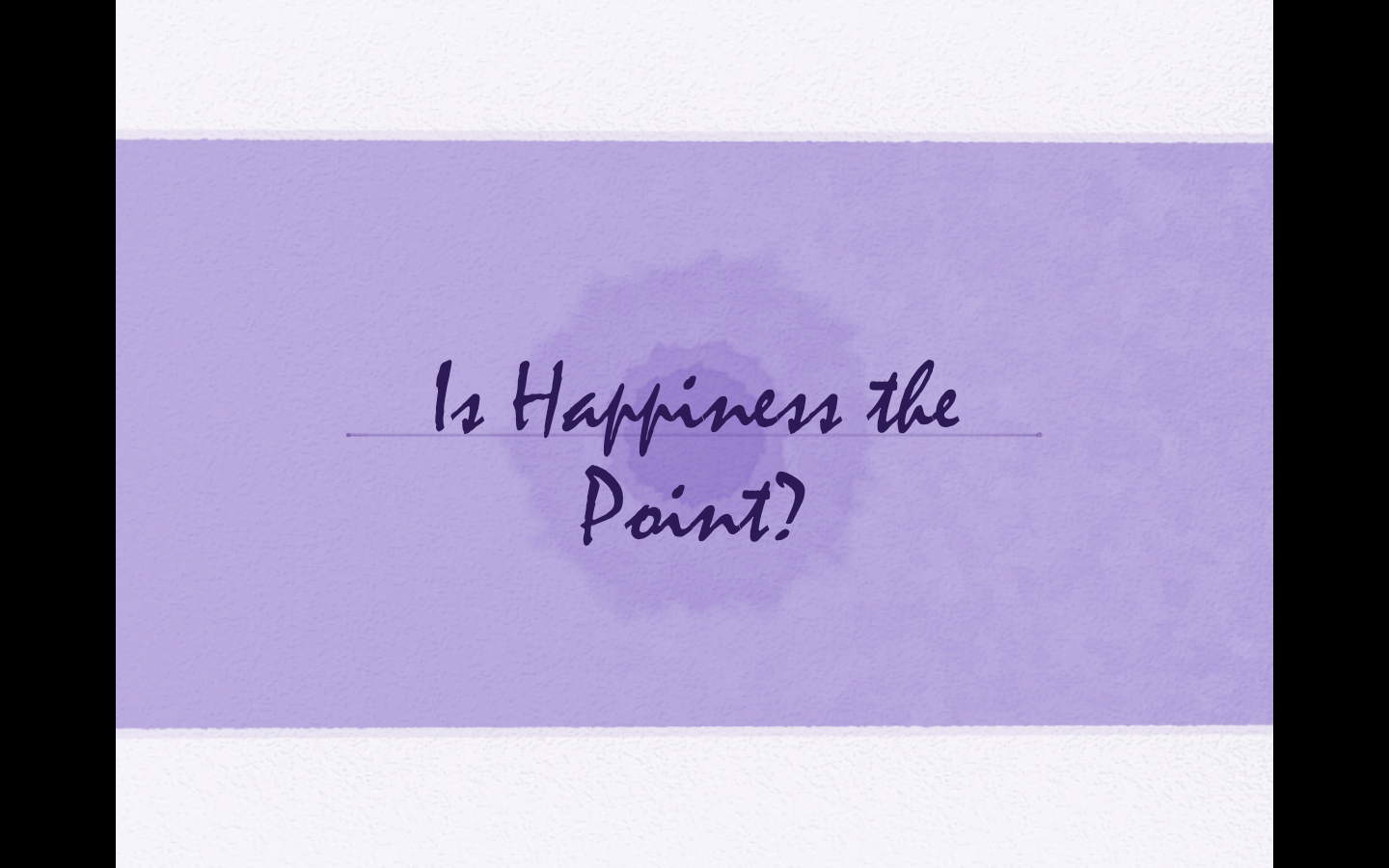Happiness: Some Early Thoughts: A Collage

I’m just beginning to explore meditation, but I keep running into this word: happiness. And I’m beginning to realize I have a bit of resistance to it—the word itself seems kind of, well . . . frivolous when you start to think about all the suffering in the world.
When I was in my twenties (and thirties and into my forties) and my mother was suffering with severe depression the word often seemed especially frivolous.
As I remember it, when I was practicing mind-body medicine, my patients rarely talked about happiness—rarely used that word. They talked about wanting to be free from pain, or fatigue, or depressing thoughts, or, sometimes, perhaps, to have peace of mind, but I don’t remember the word happiness much. As if, perhaps, there were a number line and they were trying to get out of the negative numbers and back to zero—back to some kind of baseline—and it seemed just too much to ask—even greedy—to be aiming above zero?
I found this a while back, written by Gordon Parker, a psychiatrist at Black Dog Institute, and it resonated: “As a clinical psychiatrist, I have yet to have a patient present seeking ‘happiness.’ Depressed patients have a more fundamental objective—relief from the ‘psychological pain.’”
My students use the word happiness much more often. In junior English because it’s a year that focuses on American Literature, we end up talking quite a bit about the American Dream—and this inevitably leads us into conversations about success—and happiness. If I were to choose one word that comes up most frequently when my students talk about happiness it would be family. They often link the words family and happiness. Many talk about happiness in terms of wanting to fall in love and have a good marriage and a good family and be able to support them—this often no matter what difficult circumstances they’ve grown up in—and sometimes especially when they’ve grown up under difficult circumstances.
Sometimes my students seem very innocent.
Sometimes not. Here’s a quote from one of my juniors that ended up on a poster about the American Dream: “As young children, we believe we will have the perfect lives as adults, but as we grow and mature, reality hits and we often have to settle for less.” This from a student whose father was recently diagnosed with a serious chronic illness.
What is happiness in the face of reality?
And how can that discussion be approached without sounding glib?
I go looking for quotes from the Dalai Lama on happiness and I can’t seem to find what I’m looking for—something that can speak to these questions—and to the fragment about my student—and then I find this, from The Art of Happiness, which seems to be the right next piece:
No matter what activity or practice we are pursuing, there isn’t anything that isn’t made easier through constant familiarity and training. Through training, we can change; we can transform ourselves. Within Buddhist practice there are various methods of trying to sustain a calm mind when some disturbing event happens. Through repeated practice of these methods we can get to the point where some disturbance may occur but the negative effects on our mind remain on the surface, like the waves that may ripple on the surface of an ocean but don’t have much effect deep down. And, although my own experience may be very little, I have found this to be true in my own small practice. So, if I receive some tragic news, at that moment I may experience some disturbance within my mind, but it goes very quickly. Or, I may become irritated and develop some anger, but again, it dissipates very quickly. There is no effect on the deeper mind. No hatred. This was achieved through gradual practice; it didn’t happen overnight.
I wonder if I appreciate this piece in part because, even though it’s from The Art of Happiness, it doesn’t have the word happiness in it once. Happiness seems to carry this enormous basket of different meanings and associations—and sometimes I find it more helpful to use a different word.
What the Dalai Lama is describing sounds a lot like what I think of as resilience.
I also think I like his quote because he talks about this state as an achievement—the result of training—something that doesn’t happen overnight. And I appreciate that the state doesn’t depend on external events. The disturbance still occurs—the ill father—or the icy roads—the power going out—but something deep inside becomes gradually different.
No matter what activity or practice we are pursuing, there isn’t anything that isn’t made easier through constant familiarity and training. Not just the cello and snowboarding and writing but also healing? And resilience? And happiness?
There’s the question of what kind of training—and that’s a huge question—but, first, to consider that these states are trainable, and potentially stable, goes against the grain of something—and this I think in a good way, a useful way.
________________________________________________________________
Black Dog Institute is an institute in Australia for the treatment and prevention of mood disorders. The quote is from an article, The Pursuit of Happiness. Following the quote, Parker also says, “While clinical depression and happiness may be poles apart, it would be unwise for practitioners to view the happiness movement as mere pop psychology.”
The Art of Happiness is a book by the Dalai Lama first published in 1999 and co-authored by Howard Cutler. Quote found at goodreads.
